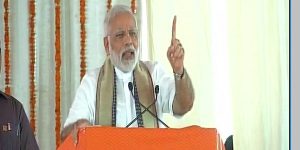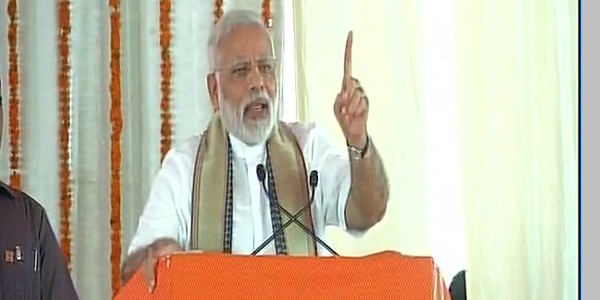 Janjivan Bureau / New Delhi : Reversing a five-quarter slide in GDP growth, Indian economy bounced back from a three-year low to expand by 6.3 per cent in July-September as manufacturing revved up and businesses adjusted to the new GST tax regime.
Janjivan Bureau / New Delhi : Reversing a five-quarter slide in GDP growth, Indian economy bounced back from a three-year low to expand by 6.3 per cent in July-September as manufacturing revved up and businesses adjusted to the new GST tax regime.
The GDP growth in the second quarter of 2017-18 compares to 5.7 per cent in April-June, the lowest growth rate since the Narendra Modi government took office, and 7.5 per cent in the September quarter of the previous fiscal, showed government data released here today.
In the fourth quarter of 2013-14, economy had grown at 4.6 per cent.
Coming close on the heels of Moody’s recent upgrade of India’s sovereign credit for the first time in nearly 14 years, the growth buoyancy comes as a shot in the arm for the Modi government, which has been fighting off charges that demonetisation and GST launch disrupted the $2.4-trillion economy.
Moody’s expects the world’s seventh-largest economy to grow by 6.7 per cent in 2017-18 and by 7.5 per cent in the next.
Chief Statistician T C A Anant hinted that the numbers could be revised upwards as businesses uncertain of the new Goods and Services Tax (GST) regime may have accounted for lesser taxes. After the five quarters of growth decline, “we see reversal of GDP in the second quarter”.
Finance Minister Arun Jaitley tweeted: “Government’s reforms to push economic growth are working, can be seen from that manufacturing has shown robust growth of 7 per cent in Q2 and services at 7.1 per cent. Gross fixed capital formation has increased from 1.6 per cent in Q1 to 4.7 per cent in Q2.”
The September quarter GDP growth, he said, “is quite a significant trend reversal” and has been driven by pick-up in manufacturing.
Traditionally, July-September is a quarter where a lot of production takes place to cater to festive demand, he said, adding that in the previous quarter, businesses were delaying production amid preparations for the GST launch.
The output in the September quarter is primarily for consumption and sales, he pointed out.
However, agriculture growth slumped to 1.7 per cent.
Gross value added (GVA), a key input of GDP that is tracked by the RBI, rose 6.1 per cent in July-September compared to 5.6 per cent in the June quarter this year and 6.8 per cent in the September quarter of the last fiscal.
The expansion in GVA in the first half of the current fiscal has been estimated at 5.8 per cent, down from 7.2 per cent in the year-earlier period.
The economic activities that registered growth of over 6 per cent in the second quarter of 2017-18 year-on-year are manufacturing, electricity, gas, water supply and other utility services, trade, hotels, transport and communication and services related to broadcasting.
The growth in agriculture, forestry and fishing was 1.7 per cent, mining and quarrying 5.5 per cent, construction 2.6 per cent, and ‘financial, insurance, real estate and professional services’ 5.7 per cent.
The growth in public administration, defence and other services stood at 6 per cent.

















